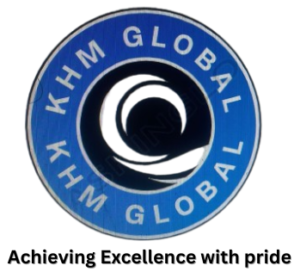MALPRACTICE AND MALADMINISTRATION POLICY
Policy statement:
Markhor Shield Security Services will not tolerate suspected or actual cases of malpractice or maladministration at any time and if there is such incident and full investigation will commence.
Purpose:
Markhor Shield Security Services recognizes it has a responsibility to prevent instances of malpractice and maladministration, to establish and maintain, and always comply with, up-to-date written procedures for the investigation of suspected or alleged malpractice or maladministration.
Examples of Maladministration
The categories listed below are examples of centre and learner maladministration. Please note that these examples are not exhaustive and are only intended as guidance on our definition of malpractice:
- Persistent failure to adhere to our learner registration and certification procedures.
- Persistent failure to adhere to our centre recognition and/or qualification requirements and/or associated actions assigned to the centre.
- Late learner registrations (both infrequent and persistent).
- Unreasonable delays in responding to requests and/or communications from the AO Inaccurate claim for certificates.
- Failure to maintain appropriate auditable records, e.g. certification claims and/or forgery of evidence.
- Withholding of information, by deliberate act or omission, from us which is required to assure the AO of the centre’s ability to deliver qualifications appropriately.
- Misuse of our logo and trademarks or misrepresentation of a centre’s relationship with the AO and/or its recognition and approval status with the AO.
- Failure to adhere to, or to circumnavigate, the requirements of our ALN (Additional Learning Needs) & Reasonable Adjustments policy.
Examples of Malpractice
The categories listed below are examples of centre and learner malpractice. Please note that these examples are not exhaustive and are only intended as guidance on our definition of malpractice:
- Denial of access to premises, records, information, learners and staff to any authorized the AO representative and/or the regulatory authorities.
- Failure to carry out internal assessment, internal moderation or internal verification in accordance with our requirements.
- Deliberate failure to adhere to our learner registration and certification procedures. Deliberate failure to continually adhere to our centre recognition and/or qualification approval requirements or actions assigned to your centre.
- Deliberate failure to maintain appropriate auditable records, e.g. certification claims and/or forgery of evidence.
- Fraudulent claim(s) for certificates.
- The unauthorized use of inappropriate materials / equipment in assessment settings (e.g. mobile phones).
- Intentional withholding of information from us which is critical to maintaining the rigour of quality assurance and standards of qualifications.
- Deliberate misuse of our logo and trademarks or misrepresentation of a centre’s relationship with the AO and/or its recognition and approval status with the AO. Malpractice or Maladministration Policy
- Collusion or permitting collusion in exams/assessments.
- Learners still working towards qualification after certification claims have been made.
- Persistent instances of maladministration within the centre.
- Deliberate contravention by a centre and/or its learners of the assessment arrangements we specify for our qualifications.
- A loss, theft of, or a breach of confidentiality in, any assessment materials.
- Plagiarism by learners/staff.
- Copying from another learner (including using ICT to do so).
- Personation -assuming the identity of another learner or having someone assume your identity during an assessment.
- Unauthorized amendment, copying or distributing of exam/assessment papers/materials/internal documents including start paperwork, progress reviews, DCR’S, Ace Forms.
- Inappropriate assistance to learners by centre staff (e.g. unfairly helping them to pass a unit or qualification).
- Deliberate submission of false information to gain a qualification or unit.
- Forgery of any learner/staff signature on internal documents such as start paperwork, progress reviews or DCR’S.
Note: As part of the learning agreement for learners to come onto our programmes they need to submit forms of ID which are photo ID checks (Passport, driving license, birth certificate)
This information will confirm to us who learner says they are and as part of the enrolment pack there is a declaration which the learner and employer needs to read in full then signs and dates.
Our responsibility:
Stage 1
Conducting of an investigation led by an Internal Quality Assurer.
Stage 2
Establishing the facts by completing the Malpractice & Maladministration report both the tutor and IQA will have input.
Stage 3
Face-to-face interviews should normally be conducted by two people with one person primarily acting as interviewer and the other as note-taker. In some cases, learners or employers may need to be contacted for facts and information. This may be done via face-to-face interviews, telephone interviews, by post or by email.
Stage 4
Wherever possible documentary evidence should be authenticated by this may include asking learners and others to confirm handwriting, dates and signatures.
Stage 5
Once the investigators have gathered and reviewed all relevant evidence, a decision is made on the outcome.
Stage 6
A report is prepared and factual accuracy agreement obtained and shared members of the Quality Team.
Director:
Markhor Shield Security Services
Suit 500, AW House 6-8 Stuart Street
Luton, Bedfordshire
LU1 2SJ
Website: markhorshieldsecurityservice.co.uk
Email: info@markhorshieldsecurityservices.com
Phone no: 0207 1933598

